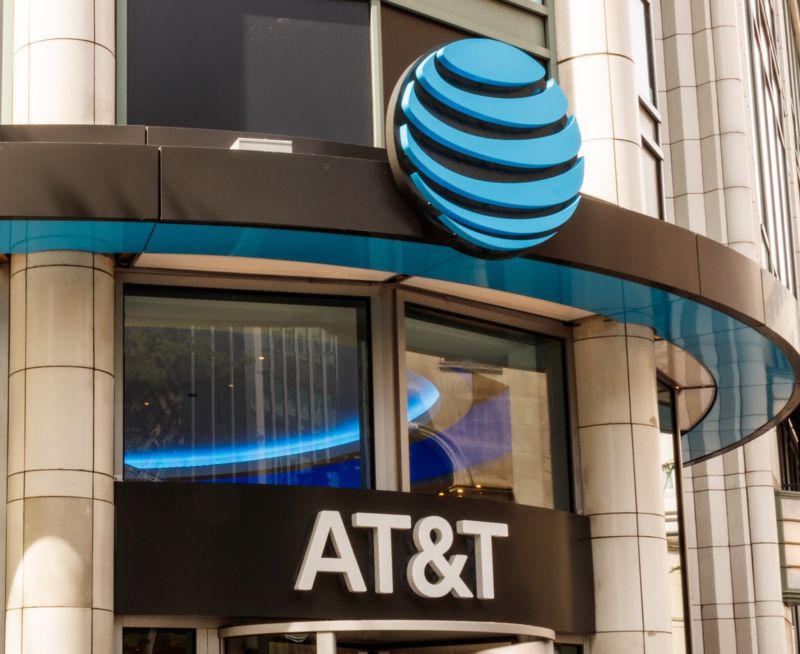
AT&T charged customers in Portland, Oregon for a corporate tax that AT&T doesn’t actually have to pay. AT&T has agreed to provide refunds to customers who were wrongly charged the tax over the past few months, but it’s facing a lawsuit that seeks additional payments of at least $200 to each of those customers.
AT&T’s mistake relates to Portland’s new Clean Energy Surcharge, a 1% tax on retail sales in the city. AT&T has been passing this tax along to its mobile customers, even though the city law exempts utilities such as AT&T from the tax.
“The city only recently notified us that we are exempt from the tax,” AT&T said a statement Friday, according to The Oregonian. “We will be issuing refunds to our customers.”
The fee, listed on AT&T bills as a Portland Clean Energy Surcharge, was as low as 5¢ per month. The Oregonian wrote that one of its employees “reported being charged 23 cents in April, 7 cents in May and 5 cents every month after until September.
But AT&T’s decision to charge the fee at all is concerning, especially in light of AT&T’s long history of charging hidden fees that aren’t disclosed in its advertised prices. There’s been confusion among other entities about who actually has to pay the Portland tax. But it’s possible AT&T should have realized that it didn’t have to pay the tax because of the exemption for utilities.
Portland says the exemption applies to “any entity operating a utility within the City” and says that utilities include “those entities defined in the Utility License Law (ULL) definitions section of PCC 7.14.040(I) ‘Utility’ and those entities that provide the services listed in PCC 7.14.040 (H), 1 through 8.”
Mobile service—what AT&T offers—is #7 on that list.
We asked AT&T why it started charging customers before making certain that it actually had to pay the tax, and whether the tax applies to other AT&T services such as DirecTV. We also asked AT&T whether it actually paid any money under the new tax to Portland before realizing it was exempt. We’ll update this article if we get any answers.
“The company wouldn’t say how many people will be refunded, when it will occur or how much money has been collected,” The Oregonian wrote.
UPDATE 2:48pm ET: AT&T responded to Ars and provided the same statement it gave to The Oregonian. The company also told us that the wrong charges happened because Portland didn’t exempt mobile providers from the tax until September of this year.
Portland’s website says on one page that the utility exemption and other tax changes were “adopted following their public hearing on April 3, 2019.” But the page describing the utility exemption says it was adopted on September 10. Based on that, it seems that the change was made public in April and implemented in September. Businesses don’t actually have to pay the taxes until April 2020.
AT&T told Ars that it will issue refunds “in the coming few months.”
Original story resumes:
AT&T also charges property-tax fee
Last week, we wrote about another strange fee that AT&T charges. AT&T charges business Internet customers a “property tax” fee in multiple states to cover its own property taxes and recently raised the fee in California from 2.92% to 7%.
AT&T isn’t required to pass these fees along to customers in separate line items, but doing so lets AT&T advertise lower prices than it actually charges. The practice also lets AT&T raise customer bills whenever it wants to, even when customers are under contracts that require them to pay early termination fees if they cancel service.
Class-action lawsuit
AT&T’s actions in Portland led to a class-action lawsuit being filed against it on Friday. The complaint filed in Multnomah County Circuit Court said:
In an effort to profit and to obtain an unfair advantage over its competitors, AT&T misled thousands of Oregon customers into paying unlawful five cent surcharges that AT&T was not permitted to collect. AT&T only said it would refund the money it wrongfully collected from Oregon customers after AT&T got caught. AT&T still has not agreed to pay its customers the $200 penalties and interest they are entitled to under Oregon law as result of AT&T’s unlawful trade practices.
The lawsuit says that AT&T “knew or should have known” that its wireless service was not subject to the clean-energy tax.
“If you steal from a bank, you can’t just refund the money you stole when you get caught and call it good,” plaintiffs’ attorney Michael Fuller told the Willamette Week. “AT&T stole from Oregon customers, and Oregon law entitles customers who were assessed the unlawful surcharge to $200 statutory damages, and punitive damages to punish AT&T and deter other corporations from charging illegal fees.”
Portland says that its clean-energy tax “is anticipated to bring $54 to 71 million in new revenue for green jobs and healthy homes for all Portlanders.” The fund being paid for by the tax is expected to start issuing clean-energy grants in July 2020.
Portland voters approved the tax in November 2018, and tax payments for 2019 retail sales are due on April 15, 2020. But businesses that make estimated quarterly payments began paying the tax in April of this year, The Oregonian wrote.